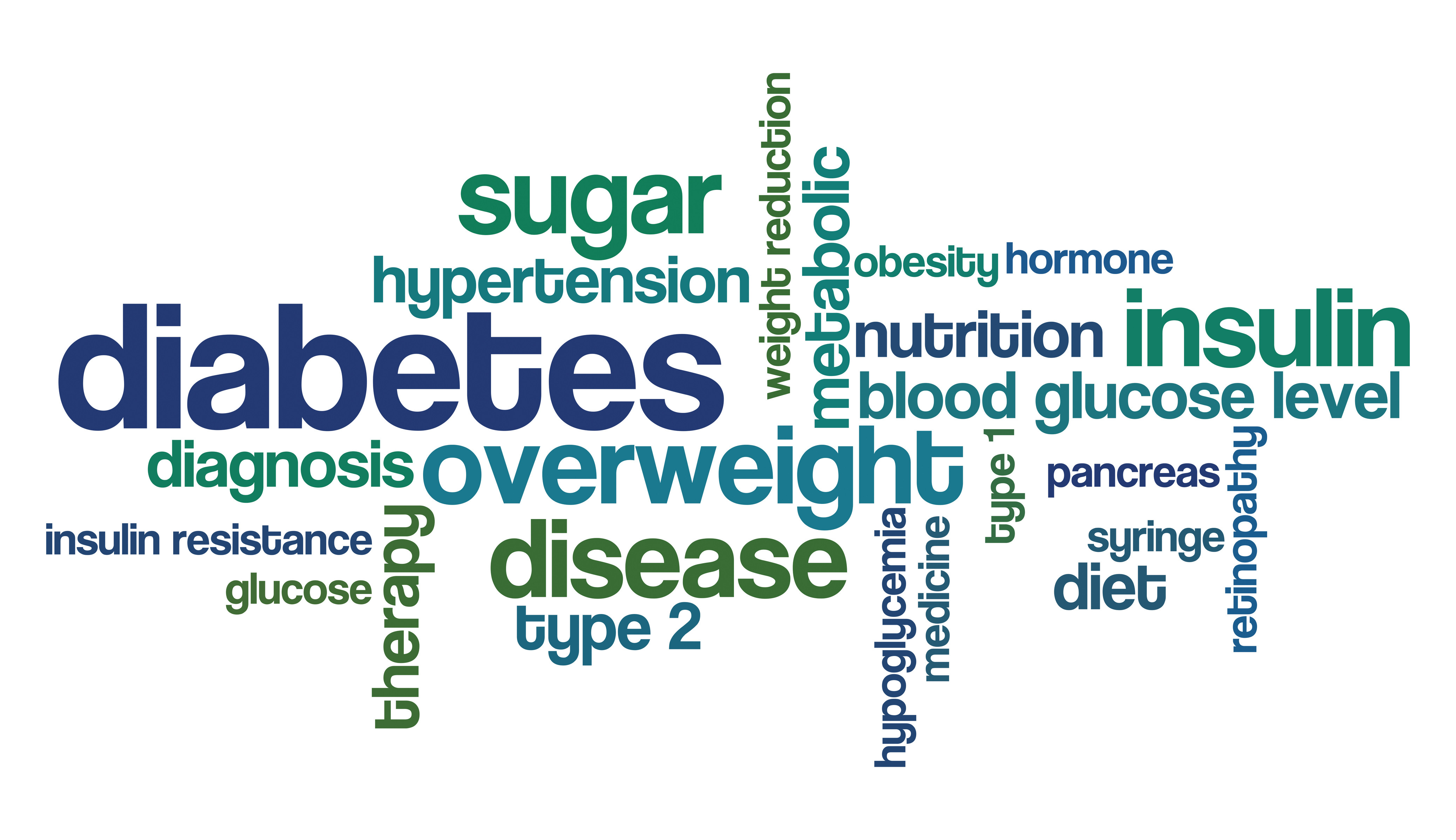
Respiratory health harms often follow flooding: Taking these steps can help

Tips to leverage neuroplasticity to maintain cognitive fitness as you age

Can white noise really help you sleep better?

Celiac disease: Exploring four myths

What is prostatitis and how is it treated?

What is Cushing syndrome?

Exercises to relieve joint pain

Think your child has ADHD? What your pediatrician can do

Foam roller: Could you benefit from this massage tool?

Stepping up activity if winter slowed you down
Diabetes Archive
Articles
Why nutritionists are crazy about nuts
Mounting evidence suggests that eating nuts and seeds daily can lower your risk of diabetes and heart disease and may even lengthen your life.
If your idea of healthy eating was formed a few decades ago, it may be hard to shake the notion that you should avoid nuts, which are high in calories and fat. But new evidence has overturned that assumption. In fact, a recent analysis of the nation's eating habits and health outcomes suggests that eating too few nuts and seeds is associated with an increased risk of dying from cardiovascular disease or diabetes.
For that study, in the March 7, 2017, Journal of the American Medical Association, researchers from the Tufts Friedman School of Nutrition Science and Policy relied on a model that used data from scores of observational studies on diet and health, including the National Health and Nutrition Examination Surveys, which provided detailed information on Americans' eating habits over the decade ending in 2012. They estimated that in 2012, over 300,000 deaths from heart disease, stroke, or type 2 diabetes — about 45% of all deaths from those conditions — were associated with eating either too much or too little of 10 nutrients.
Stop diabetes before it begins
Millions have prediabetes and don't know it. Here is why it's important to find out and act to lower your diabetes risk.
Image: © shelma1/Thinkstock
An estimated one out of three American adults is prediabetic, which means blood sugar levels are higher than normal but below the threshold for type 2 diabetes. Yet 90% of these people do not realize they are in this dangerous gray zone.
"You are not going to have symptoms for prediabetes," says Dr. David Nathan, director of the Harvard-affiliated Massachusetts General Hospital Diabetes Center. "Instead, you or your doctor should determine if you have any of the common risk factors, get your blood sugar levels checked to determine if you have prediabetes, and then make the necessary lifestyle changes you need to stop type 2 diabetes from occurring."
Why middle-age spread is a health threat
Those extra inches around the middle may signal increased fat around abdominal organs and rising health risks.
It's a rare woman over age 50 who has the same waist measurement she had as a teenager. But in the past decade or so, women's waistlines have been expanding regardless of age. A 2014 report from the National Health and Nutrition Examination Survey found that from 1999 to 2012, the average body mass index (BMI) for women age 20 or older held steady. But during the same period, the average female waistline grew slowly and steadily, from 36.2 inches to 37.8 inches. Researchers are still searching for an explanation for this phenomenon, but they do know one thing: increasing waistlines are linked to greater risks for heart disease, diabetes, and osteoporosis.
What's in a waistline?
Regardless of whether your weight has changed over the years, your height is likely to have decreased, the result of declining volume in the intervertebral discs of the spine. As your torso shortens, your abdominal organs have less vertical space to inhabit, so they move horizontally. If you haven't gained weight, an increase of an inch or two around the waist may simply reflect lost height.
Aspirin therapy may not lower heart attack risk for those with type 2 diabetes
In the journals
Low-dose aspirin therapy is standard treatment for people who have suffered a heart attack or stroke to protect them from a second one. But what about people who don't have cardiovascular disease, but do have specific risk factors, such as type 2 diabetes? A study published in the Feb. 14, 2017, Circulation found that low-dose aspirin therapy in fact did not lower this group's risk for heart attack or stroke.
The researchers recruited more than 2,500 people, ages 30 to 85, with type 2 diabetes and randomly assigned them to take either 81 mg or 100 mg of aspirin daily, or no aspirin, for three years. At the 10-year follow-up, they found that the aspirin therapy did not lower risk of either heart attack or stroke compared with taking no aspirin at all. The reason is not clear, but the researchers speculated that people with diabetes might not experience the expected anti-clotting action of aspirin.
How to eat healthy away from home if you have diabetes
For people with diabetes, eating out — whether at a restaurant, a social function, or a friend's home — can be a challenge. Portions can be hefty and packed with calories and saturated fat. When you eat out, it may help to follow these simple guidelines:
- Ask how entrées are prepared, and avoid fried foods or dishes served in heavy sauces or gravies.
- Choose skinless chicken, fish, or lean meat that's broiled, poached, baked, or grilled.
- Get the server's advice to help you select healthy, low-fat dishes. Restaurants are used to dealing with special diets.
- Don't feel obliged to clean your plate. Eat a reasonable portion, and take the remainder home.
- Choose steamed vegetables and salads to accompany your meals. Request low-calorie dressings and toppings, and if they're not available, ask for all dressings, butter, and sauces to be served on the side so you can use them sparingly.
- If you take insulin and you know your meal will be delayed, time your injection appropriately. You may need to eat a roll or piece of fruit to tide you over.
- If you're craving dessert, have some — but split it with someone else.
For more information on the essentials for a healthy diet and managing type 2 diabetes, buy Healthy Eating for Type 2 Diabetes, a Special Health Report from Harvard Medical School.
Ask the doctor: Do artificial sweeteners cause insulin resistance?
In preliminary research, sucralose and acesulfame potassium increased insulin levels, although more studies are necessary to determine whether they—or other artificial sweeteners—increase the risk of insulin resistance.
Ask the doctor: Does psoriasis raise diabetes risk?
Some experts feel there is evidence that probiotics may help prevent or treat several conditions, such as inflammatory bowel diseases, travelers’ diarrhea, irritable bowel syndrome, and some allergies (particularly eczema).
The data are in: Eat right, reduce your risk of diabetes
Data from surveys of 200,000 people spanning two decades add support to the belief that eating a diet made up largely of plant-based foods is likely to lower a person’s risk of developing diabetes.

Respiratory health harms often follow flooding: Taking these steps can help

Tips to leverage neuroplasticity to maintain cognitive fitness as you age

Can white noise really help you sleep better?

Celiac disease: Exploring four myths

What is prostatitis and how is it treated?

What is Cushing syndrome?

Exercises to relieve joint pain

Think your child has ADHD? What your pediatrician can do

Foam roller: Could you benefit from this massage tool?

Stepping up activity if winter slowed you down
Free Healthbeat Signup
Get the latest in health news delivered to your inbox!
Sign Up











